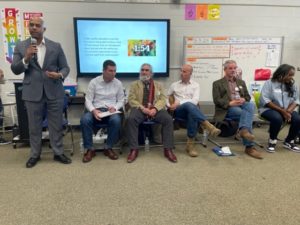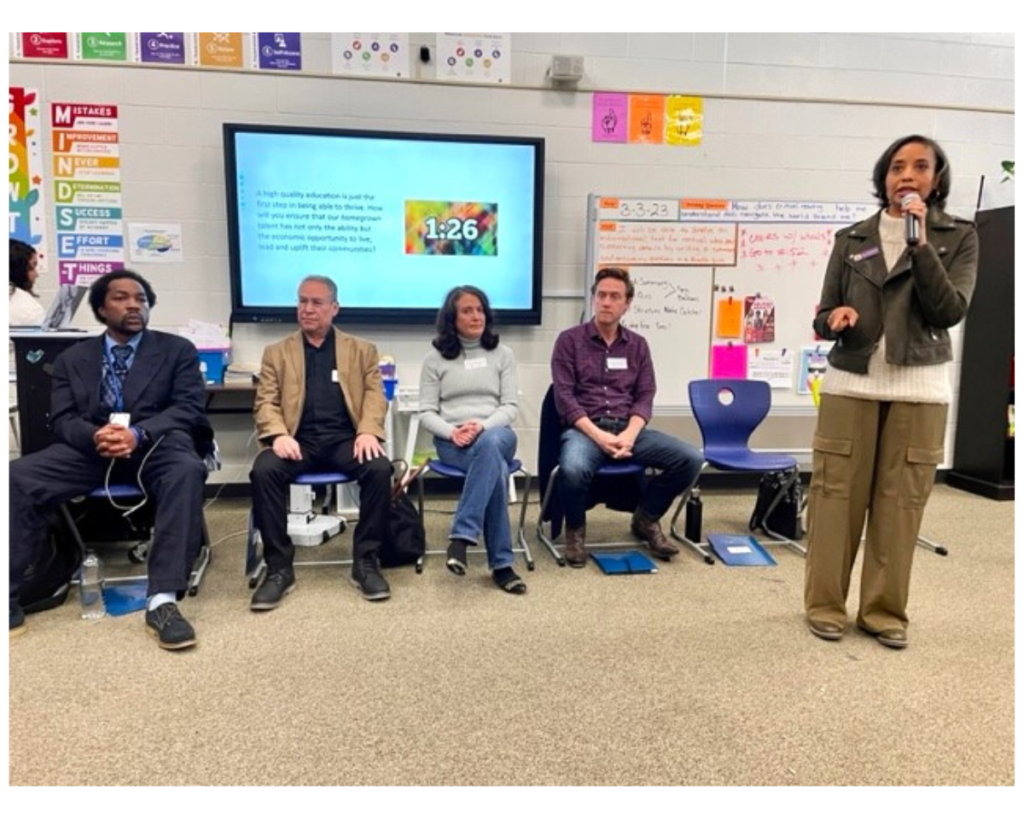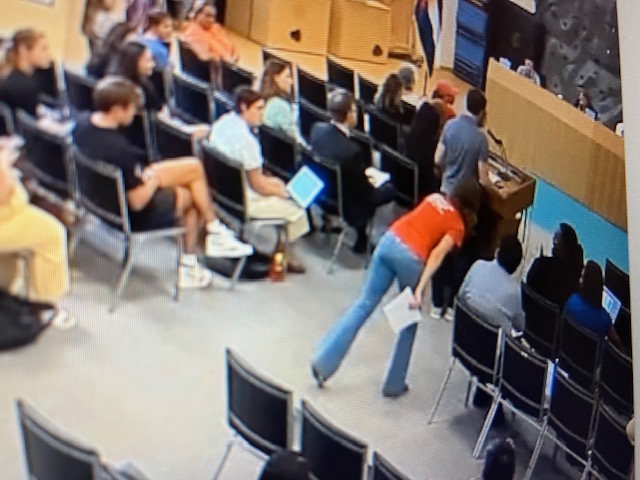Education was the theme at a well-attended forum that drew 17 mayoral candidates on Saturday, but their discussion was dominated by the hot-button issues of housing affordability, homelessness, public safety and income inequality.
With so many candidates, a traditional back-and-forth debate was not possible in the limited afternoon time frame, and the organizers rotated a smaller group of candidates into three separate classrooms, each packed with parents, activists and voters at Kepner Beacon Middle School in Southwest Denver.
“Everything is broken in Denver,” said Aurelio Martinez, a small businessman who has made that slogan his campaign theme.
Most others echoed the idea that Denver is desperate for new leadership that will tackle the city’s daunting challenges with more urgency and focus. Their disagreements came on how to achieve it.
Many detailed their personal history as Denver school graduates and parents, asserting that the next city administration needs to be more involved in working with the Denver Public Schools administration and board to enhance after-school programs, high school internship and apprenticeship partnerships with local businesses, and to commit more resources for low-income families and students of color.
State Rep. Leslie Herod and state Sen. Chris Hansen, Denver Democrats who were both former Joint Budget Committee members, cited their continued advocacy to increase funding for Colorado schools as evidence of their commitment to education. Given the city’s current annual budget of $3.75 billion, they and others argued, more resources can be set aside to help students with increased education, social and mental health programs.

There was also talk among the candidates about safety and how the city needs better strategies in and out of school to stem the rising tide of youth violence. This issue was especially timely following the death last week of East High School student Luis Garcia, who was shot sitting in his car near the school last month.
Hundreds of East students staged a protest outside the Capitol on Friday to demand the Legislature do more to protect young people. But few specifics were offered at this forum.
Lisa Calderón, university educator and executive director of Emerge, a nonprofit that recruits and trains women to be political candidates, said achieving better safety requires new approaches to reform such as more attention to prevention, intervention, mental health services and treatment.
“(Adding) more police will not help keep us safe,” she said.
The subject that generated the most discussion was how to create more affordable housing not only as it relates to families and schools but also the city’s economic vitality and quality of life.
“I’m a son of a Denver public school teacher – she could not afford to live in Denver now,” said Kwame Spearman, the co-owner and chief executive officer of Tattered Cover bookstore. Upcoming school closures citywide due to declining enrollment will continue unless Denver can do more to slow the exodus of families resulting from neighborhood gentrification and rising housing prices, he and others said.
Hansen, Kelly Brough and Mike Johnston said they would push for construction of affordable residential development in available public and private property along transportation corridors across the city.
“The average home price in Denver is now $700,000 compared to an average income of about $70,000, which is way more than the starting salary of $40,000 for a Denver teacher,” Hansen said, estimating that Denver will need 50,000 additional units to help meet the demand for more affordable housing.
Brough, former Denver Metro Chamber of Commerce president/CEO and former Mayor John Hickenlooper’s chief of staff, favors transforming vacant office space into residential housing and streamlining the city’s development bureaucracy.
Johnston, former Denver state senator and K-12 educator, said he has the track record to find solutions after heading a a coalition of 260 business and community leaders that worked to convince voters to pass Proposition 123 last year, which sets aside $300 million a year statewide for affordable housing without raising taxes.
Other candidates attending were: Ean Thomas Tafoya, Al Gardner, Robert Treta, Thomas Wolf, Trinidad Rodriguez, Jesse Parris, Andy Rougeot, Terrance Roberts, Jim Walsh and write-in candidate Paul Fiorino.
The forum was sponsored by the community education advocacy group TEN Collective Impact and Ednium:The Alumni Collective, a group of young graduates of DPS high schools. Nick Martinez of TEN said nearly 200 people attended, and the format of rotating panels enabled both the candidates and those attending to discuss issues in more detail while also giving each candidate the same amount of time to make their case.
Ballots go out in the mail starting March 13 for mayor, city council, auditor, clerk and recorder and ballot measures. Voter registration deadline is March 27, which is also the last day to mail ballots. The last day to vote in person is election day, April 4. If no mayoral candidate receives a majority vote (50% plus 1), a runoff between the top two vote-getters will be June 6.
More information is available on the city’s website.




